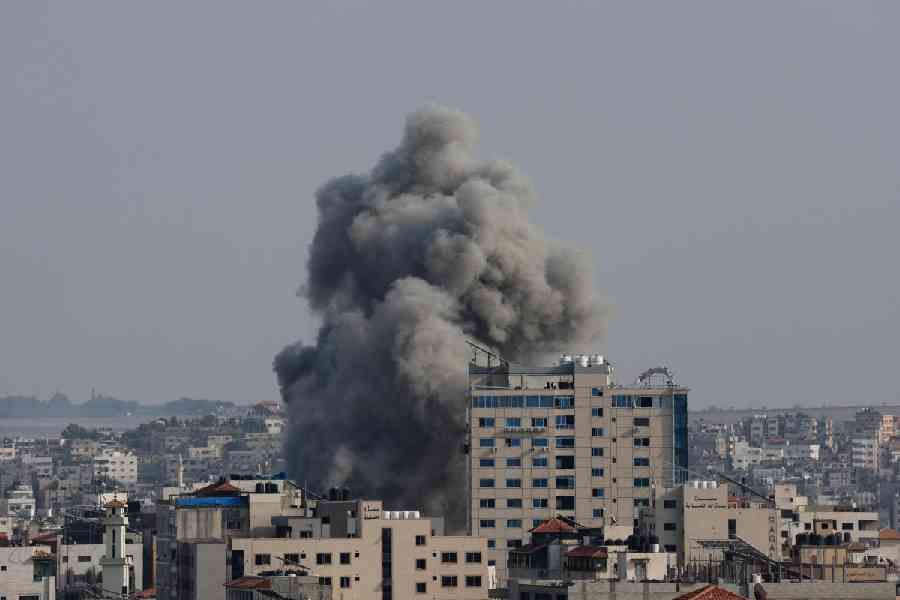Hamas’s attack on Saturday took Israeli intelligence officials by surprise, particularly the methods the militants used to enter and leave Israel, according to a senior defence official familiar with the information collected about the group.
The broad attack, mostly successful from Hamas’s point of view, revealed some significant failures by the Israeli defence establishment. It also may change Israel’s overall strategic approach to Hamas and the Gaza Strip, said the official, who asked not to be identified when discussing security matters.
And that could have a far-reaching effect on the entire West Asia.
Until now, Israel has contained Hamas and Gaza with a strategy that hinged on an intelligence network that would warn against Hamas’s moves, and on the power of the Israeli Army to repel a ground invasion by Hamas. In the Hamas attack on Saturday, these two safeguards failed.
Israel is traditionally perceived as the strongest intelligence power in the region, with extensive coverage of the Gaza Strip. In recent months, Israeli intelligence did repeatedly warn that a military conflict could flare up because Iran and affiliated militias have perceived Israel as weakened by the nation’s profound divisions over the judicial overhaul being pursued by the ultra-Right governing coalition of Prime Minister Benjamin Netanyahu, according to four senior defence officials.
Still, while Israeli intelligence collected some indications that Hamas was planning a major operation, they were far from forming a clear picture, one of the officials added.
Israel, the official said, did not pick up on the elaborate preparations that were most likely needed for the 250 Hamas militants tasked to lead the assault, and target military bases, cities and kibbutzim.
American officials, too, said that both Israel and the US had known a Hamas attack at some point was possible, or even likely. But they said there was no specific tactical warning of the strikes on Saturday.
Many questioned why Israel and the US were blindsided. Mick Mulroy, a former CIA officer and senior Pentagon official, said the complexity of the attack by Hamas indicated that it would have required much preparation.
Since the Israeli withdrawal from the Gaza Strip in 2005, Hamas has transformed from a militant organisation to the leader of a territory with many characteristics of a state. The group has started rounds of fighting with Israel every few years, which usually have not lasted more than a week. These attacks include firing rockets on Israeli cities and trying to kidnap or kill Israelis. But nothing has been as extensive as the Saturday attack.
For its part, Israel in past years has responded with its enormous firepower, usually from aircraft, against targets in Gaza and has tried to assassinate the organisation’s senior officials. But it has launched very limited ground manoeuvres.
The Israeli strategy has been to contain the fighting against militants in the Gaza Strip, as long as Israel’s fatalities were not too high, which might oblige it to engage in an all-out ground invasion.
Four successive Israeli Prime Ministers decided that the price of invading and occupying the Gaza Strip to crush Hamas rule would be too high, in the lives of Israeli soldiers and Palestinians, and that the toll of governing millions of residents there would be too costly.
Israel continued to act this way even though it knew that both Hamas and Palestinian Islamic Jihad have received funding, training, weapons and advanced combat and intelligence gear from Iran, three officials said, and that the militant groups were becoming stronger.
The surprise attack on Israel came almost 50 years to the day to the start of the Yom Kippur War, which began with a surprise attack by Syrian tank columns and Egyptian brigades. The defence official said this was most likely not a coincidence but a careful choice by Hamas to pick a date perceived as a national trauma.
Israel is now likely to respond with force, and possibly with a ground invasion of Gaza, in the belief that Hamas did not leave it any choice, a senior defence official said.
New York Times News Service











